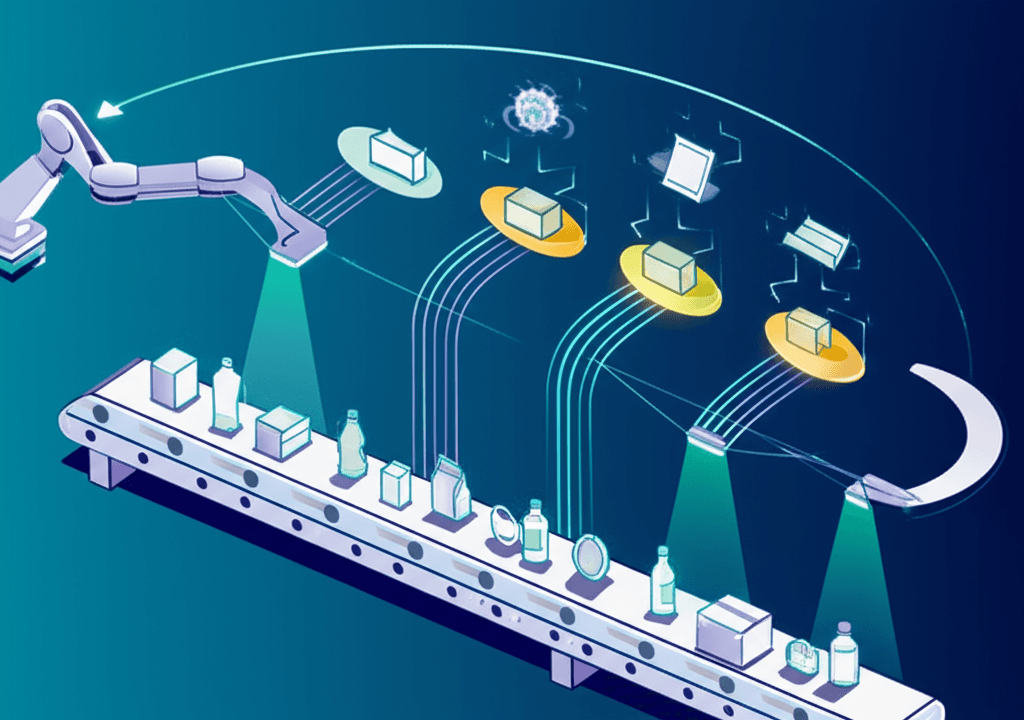Greyparrot's AI Deepnest Transforms Waste Into Value, Drives Circular Economy.
Deepnest's AI-driven insights give brands unprecedented visibility into packaging's post-consumption journey, transforming waste into a multi-billion dollar resource.
June 24, 2025

A significant hurdle in achieving a circular economy has been the immense gap in knowledge about what happens to products after they are discarded. Addressing this, waste analytics leader Greyparrot has launched a groundbreaking AI-powered platform, Deepnest, designed to provide brands with unprecedented visibility into the post-consumption journey of their products. This new tool aims to help track and unlock the value of recyclable materials, which could amount to an estimated $100 billion annually by 2040 if Greyparrot's systems were adopted globally.[1][2][3] The platform gives brands, for the first time, direct access to data on how their packaging performs within the waste system, revealing what is successfully sorted and recycled versus what is lost.[1][2] This initiative comes as industries face mounting pressure from regulations like virgin plastic taxes and Extended Producer Responsibility (EPR) fees, which could cost businesses up to $100 billion each year by 2040.[1]
Deepnest operates by leveraging Greyparrot's existing AI-powered camera systems, known as the Greyparrot Analyzer, which are already installed in material recovery facilities (MRFs) across more than 20 countries.[1][2] These systems utilize computer vision to identify and categorize waste items on conveyor belts in real-time, creating what the company claims is the world's most comprehensive database of household packaging waste.[1][2] In 2024 alone, these systems processed and analyzed over 40 billion waste objects.[1][4] The Deepnest platform aggregates and anonymizes this vast amount of data to deliver detailed, product-level insights to brands.[1][3] It tracks packaging performance by brand, material, product type, and region, offering a clear picture of the recycling journey without guesswork.[1][2] This allows consumer goods companies, who currently spend millions on product innovation and testing with limited real-world feedback, to validate their packaging designs and make data-driven improvements.[1]
The implications of this technology for the recycling and consumer goods industries are substantial. Major brands including Unilever, Asahi, and packaging producer Amcor are already piloting the Deepnest platform.[1] For these companies, the platform offers the potential to benchmark their packaging's recycling performance against competitors and category standards.[1][3] It provides actionable recommendations for improving packaging design, from shape and color to material composition, to enhance recyclability in practice, not just in theory.[1][2][4] Mark Roberts, Circular Economy Director at Amcor, highlighted that the packaging industry has traditionally relied on lab-scale testing and models, lacking real-world data. He stated that Deepnest is "unlocking real-world recyclability data that the packaging data chain has been missing."[2][4] By providing this crucial feedback loop, the platform can help companies design packaging that is more easily recovered, increasing the supply of high-quality recycled materials and moving closer to a truly circular economy.[2][4]
The launch of Deepnest is a significant development within the broader trend of artificial intelligence revolutionizing the waste management sector. AI is being increasingly adopted to tackle long-standing challenges of inefficiency and contamination in recycling streams.[5] Globally, only about 19% of waste is recycled, and in the U.S., that figure is less than 24%, far from the national goal of 50% by 2030.[6] AI-powered systems, like those developed by Greyparrot, have demonstrated the potential to significantly boost efficiency and accuracy.[6][7] These technologies can identify and sort materials at speeds and scales unattainable by humans, reducing contamination by nearly 40% and increasing sorting efficiency by 60%.[6][8] By automating and optimizing the sorting process, AI not only increases the value of recovered materials but also improves safety for workers in a traditionally hazardous industry.[6][8] The adoption of AI in waste management is projected to grow at a compound rate of 22% per year through 2030, with systems like Greyparrot's becoming standard in new and retrofitted facilities.[6]
In conclusion, Greyparrot's Deepnest platform represents a pivotal step towards bridging the data gap between product creation and end-of-life management. By providing objective, real-world data on packaging recyclability, it empowers brands to make informed decisions that can reduce financial risks associated with waste-related regulations and contribute to a more sustainable, circular economy.[1] The platform's ability to track billions of items and translate that chaos into actionable insights illuminates the vast economic potential lying dormant in our waste streams. As Greyparrot's co-founder Ambarish Mitra noted, the term "waste" is a misnomer, as the data reveals post-consumption materials are worth billions to the global economy.[1][2] This technology not only offers a pathway to recapture lost value but also fosters a more transparent and collaborative ecosystem where producers, recyclers, and regulators can work together to solve the global waste crisis.[9]